August 26th, 2022: Greetings from Kittery, Maine. I’m up here for the weekend catching up with some guy friends before heading out to Portugal for the month this week.
New Pod with Tasshin Fogleman: On metta, loving-kindness, the monk path, being “very online,” wandering and more. Audio | YouTube
Wanted to shout out Jakob Greenfeld’s newsletter Business Brainstorms, which covers trends, opportunities, and signals for indie entrepreneurs. Jakob has done tons of experiments over the past few years and I’m always blown away by what he comes up with.
#1 You’re Never Going To Make It
I stumbled upon an amazing essay and podcast by David Kadavy titled, “Fifteen Years as a Creator. (I’ll Never Make It.)”
It was one of the best reflections I’ve seen on the self-employed creator path.
This quote stood out:
Take it from me, a ten-year veteran self-employed creator: If you are looking for security or reassurance, I do not recommend this line of work. However, if you are burning with curiosity – if your heart and intuition lead you to do things that don’t make sense – well, then you don’t really have a choice in the matter, do you?
Like David, my heart and intuition have led me to different conclusions about how to live, and that definitely comes with less security and reassurance from the outside world. It is okay because this weird kind of life opens up more space for my curiosity to emerge.
In the essay, he writes about how it took him almost fifteen years to reach a point where he could look in the mirror and tell himself he had “made it.”:
However, about a year ago, my numbers started to climb. I recently reported a six-figure-year for the first time. I had made six-figures before the reports, but most of that was from an uninspiring blog I had written under a pseudonym. This was the first time I could look at every dollar I had made and say to myself, “I made this money doing exactly what I want to be doing. I am officially me for a living.”
Yet despite this, he also felt an emptiness:
I had struggled for so long, so hard, and had passed up so many other opportunities a normal person would have taken. I risked failure, and hadn’t failed. Why did I feel a lack of inspiration, a malaise?
In full-time work, there were clear milestones that everyone around me acknowledged. Promotions, title changes, job changes, year-end, etc. In self-employed land, there are no shared stories or milestones and I suspect this is why people put so much pressure on themselves to reach milestones like “six figures.”
The problem is that nothing ever helps you escape the reality of life - that you never really arrive.
This is also one of the benefits of this kind of path. In knowing that you will never arrive, you have to find things that you want to keep doing.
Or as David puts:
So, after fifteen years, I’ve “made it” as a creator, financially-speaking, in a relatively minor way, for now. But maybe the best part of making it is realizing you now have the privilege of feeling you haven’t. So you can freely struggle to reach your destination, only to do it again.
+ David has a bunch of great stuff, including income reports here on his blog. I’m going to try to record a pod with him soon. Stay tuned!
#2 Student Loans
I don’t have a strong take on the US student loan forgiveness this week other than to note that no one seems serious about actually fixing systemic issues. Megan McArdle makes this point in an op-ed this week, drawing parallels to how the US kicked the can down the road in healthcare for almost 20 years:
That was all well and good until 2003, when the federal government realized it would need to actually impose significant cuts on those reimbursements. Physicians squealed, and a wincing Congress passed the first “doc fix,” temporarily suspending the caps. Freed from the constraints of the SGR, physician reimbursements continued to grow faster than GDP — which meant that every year, the cost of actually imposing the SGR got bigger.
The “doc fix” became a regular ritual in Washington, because the alternative became increasingly unthinkable: By January 2013, doctors were facing a potential pay cut of 26.5 percent. Unwilling to anger doctors, or to anger seniors whose doctors stopped taking Medicare, Congress kept granting reprieves, until the Obama administration finally bit the bullet and pushed through a (now very expensive) reform in 2015.
I think one of the saddest thing to observe with this kind of debate is how quickly people accept the current frames of for/against the current action, anchored in takes like “this costs too much,” “the system is rigged,” or “this is unfair.”
What you rarely hear is “we need to unleash more human creativity into the world.”
The default path stories of work have convinced far too many people that the point of life is to suffer, pay your dues, and work continuously. All that matters is having a job. We look at massive debt for higher education as a fact of life and place all responsibility on the individual. Which is fair. What the hell are people thinking when they spend $200k without a plan? One of the biggest factors for me to go to UConn was the cost. I was terrified of debt. Going to the “best” school seemed like a silly thing to optimize on.
Yet it seems that the outcome of this system is that we place far too many young people, thoe who will literally create the future, not to mention pay for the massive boomer population’s extended social security lifespans, under the psychological stress of stupid amounts of debt.
Which brings me to an interesting study of loan provider National Collegiate, who because of legal issues, had to forgive a number of its loans to borrowers.
Researchers looked at the results of this unexpected forgiveness. Here’s what they found:
We indeed find that treated borrowers are significantly more likely to change jobs with respect to the control group after the debt-relief shock and to accept higher-paying jobs. These findings speak to the importance of debt overhang for these borrowers, who seem to be constrained by the presence of the student loans on their record.
In addition, they found that people were, “significantly more likely to move to another state when their student loans get discharged.”
Removing debt seemed to free up the capacity for change towards new jobs, new places, and new paths. This is excellent!
Should we forgive people’s student debt? I don’t know? But should we focus more on unlocking this kind of dynamism? Hell fucking yes.
#3 Capitalism Is A Lame Scapegoat
I find a lot of mainstream writing on work to be predictably dull. Much of it takes the stand that capitalism is bad and needs to be fixed or anchored around an early 1900s framing of a working/owner class conflict that doesn’t map our modern world.
The solution of most of these articles is to blame capitalism.
Claire Coffey writes about the limits of this stance:
When living “under capitalism” becomes a catch-all explanation for what you can’t manage — whether that’s getting on the metaphorical treadmill or stepping off it — it assumes the nature of a complaint to an adjudicating authority. Since capitalism has impressed such impossible conditions on us, we can’t reasonably be expected to deal with it until they improve. But in fact there is no one to adjudicate between you and capital, no one to say yes, that really is too much, let’s reassign this project. There is no political program that will release you from the necessity of doing more than you should have to or feel capable of doing, in politics as in every other part of life.
This is the same issue with the “cancel student loans” stance. It shifts all blame to the system. Parents, school administrators, and students are implicitly told that the system will continue to operate as normal.
Her conclusion offers a reframe of what the good life really means:
If you think seriously about the good life and pursue it, you will probably fail in ways large and small. But an imperfect struggle to live well and love a world badly in need of repair is better than staying still because things are terrible, because you might look like a loser in the meritocratic game, because it’s easier.
Sometimes the system feels like it is pretty stacked against people like me that are self-employed and building their own thing. It feels like it shouldn’t be this way. But the costs are worth it and I’m gladly on this journey.
Thanks For Reading
ICYMI - last week, my thoughts on believing in others was one of my most shared newsletters.
I am focused on building a life around exploring ideas, connecting and helping people, and writing. If you’d like to support my journey, the best ways are to:
Buy or listen to my book, The Pathless Path
Purchase one of my courses on freelancing or reinventing your path
Subscribe to my podcast and leave a review
In addition, I recommend all of the following services (affiliate links).
Riverside.fm: HD Video and Audio Podcast recording
Transistor - 14 day free-trial podcast hosting
Podia - 14-day free trial (read my review here)
Teachable - 14-day free trial
Skystra - Fast WordPress Hosting
Circle - 14-day free trial
Alternatively, if you want to support this newsletter through an ongoing micro-donation, you can join 68 other people here:
A reminder: I don’t check unsubscribe alerts and never look at my subscriber list. So if you feel like unsubscribing, you can do so below.


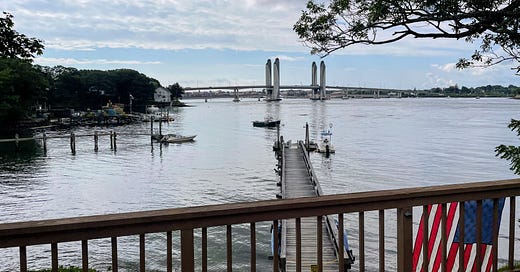



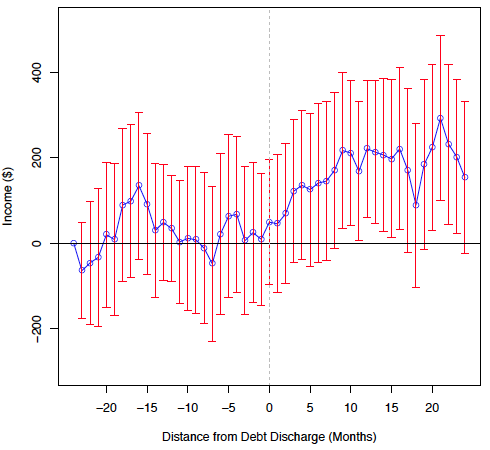



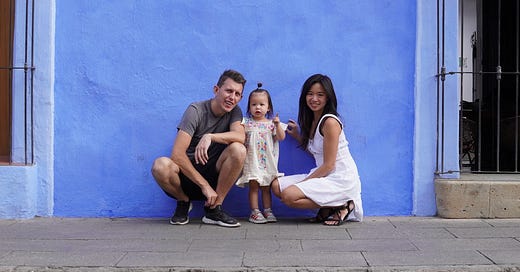

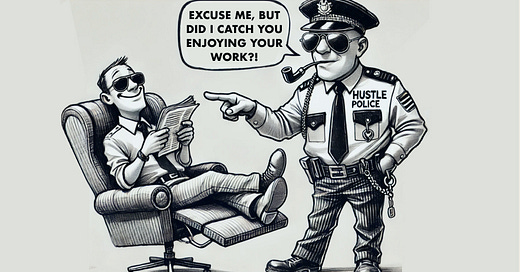

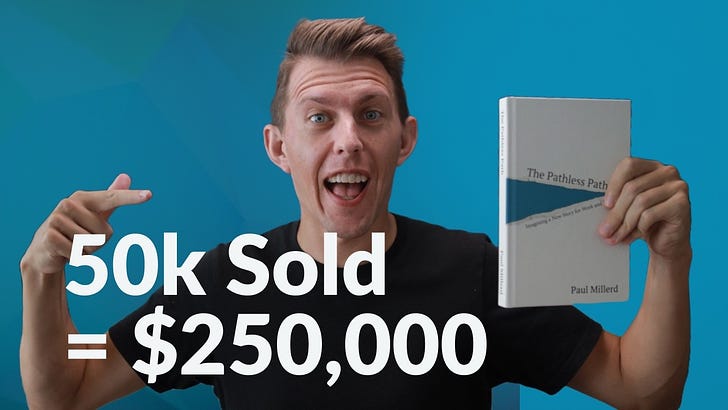
re: "you are never going to make it" — It's funny though how much of the narrative around "creators" (whatever that word might mean...) seems to be still centered around arbitrary, quantitative milestones.
Just this week I think I stumbled across at least 4 or 5 interviews of how people got to make millions of dollars in income. I don't relate.
I found myself thinking: "I don't care about making millions, that's too much work, give me interviews of people making 50k a year working a third of what they were working before, please".
We desperately do need alternative narratives, otherwise we will be stuck in same ones forever.
I also love David Kadavy’s work and listened to that podcast episode as well. I was struck at first with a feeling of discouragement, seeing someone who I considered as “making it” saying he thought otherwise!
Who am I, then, to consider this kind of work?
But, as always, the comparison to the default path’s measure of success is really where the dissonance resides.
Is it that he can’t pay his bills? Obviously not. Would I want to impact people with my writing and ideas and generate a comfortable enough income doing it? Yes.